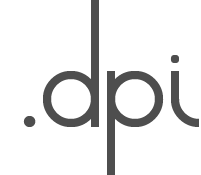By .dpi on Friday, April 17, 2015 - 16:59
Call for submissions .dpi 32
Theme : Queer Networks
Guest Editor : Mikhel Proulx
Deadline : Friday, 24 April 2015
Queers on the early Web found each other across cultural and material borders to create online identities and develop networked cultures. These were sexual becomings in online subcultures where new configurations of the self led to novel forms of self-identification, pleasure, and kinship. But these new affordances also imposed limitations, structured as they were in finite digital communications systems. Hence, the affordances of new technologies shape modes of sexual and gendered embodiments and subjectivities. This has become all-but obvious in the age of Grindr (etc.), where both instant access to networked Queers—and the limitations of our social and technical systems—are readily apparent.
Twenty years after the birth of the modern Internet, and now fifteen years since Nina Wakeford contemplated cyberqueers, this issue of .dpi will address Queer sexual and gender variance in the highly structured spaces of the Web. Queer Networks will consider how gender and sexualities are constructed and depicted by digital media, and also how challenges to these protocols have been formed by critical artists and designers. We will look to representations of Queer, networked modes of being to determine how subjects are shaped by specific logics of identification on the Web. Here, we may find critical alternatives in performances of the self, in social and political networks, and in romantic and sexual unions that are non-normative, subversive and strange.
Potential topics might include:
-
Queer cultural production in network media
-
Mediated sex and the hookup economy
-
(Alternative) pornography, sex work and role-play
-
Technologies of heteronormativity
-
Queer selfies and representation
-
Viruses and virality
Mikhel Proulx is a cultural researcher of contemporary art and digital visual cultures. His research considers Queer and Indigenous artists working on the early Web. He holds a BFA in Drawing from the Alberta College of Art and Design and an MA in Art History from Concordia University, where he is currently developing his PhD. He is the 2015 Jarislowsky Foundation Doctoral Fellow in Canadian Art History. His artworks and curated projects have been exhibited across Canada, Europe, and the Middle East.
To Submit
.dpi is looking for submissions relevant to (or stemming from) “the Web”, including text, image, sound, video, animation, interactive works, or others, and any combination of these, produced collaboratively or individually. Types of submissions include (but are not limited to): short essays, criticism, interviews, case studies, reviews, reports, alternative histories, statements and manifestos, creative works (or extracts), networked art practices and conversations, and other imaginative responses. The editorial committee encourages the submission of non-academic contributions (or that go beyond the academic style). Text length can vary between 500 and 1500 words (maximum), depending on the form and the media used. Articles should integrate links, images, videos, or other web-based content, as much as possible.
Please send an abstract of your submission by Friday, 24 April 2015 to: revuedpi(at)gmail.com
All submissions should include:
-
a short biography (100 words) per person involved;
-
an abstract (100 words);
-
3 to 5 keywords.
An honorarium is offered depending on the length and complexity of the contribution. The authors and artists are responsible for all copyright related to the submitted content.
Submissions that fall outside of the Themed Section are also welcomed and will be considered for publication in the Field Studies Section (“hors dossier”).
